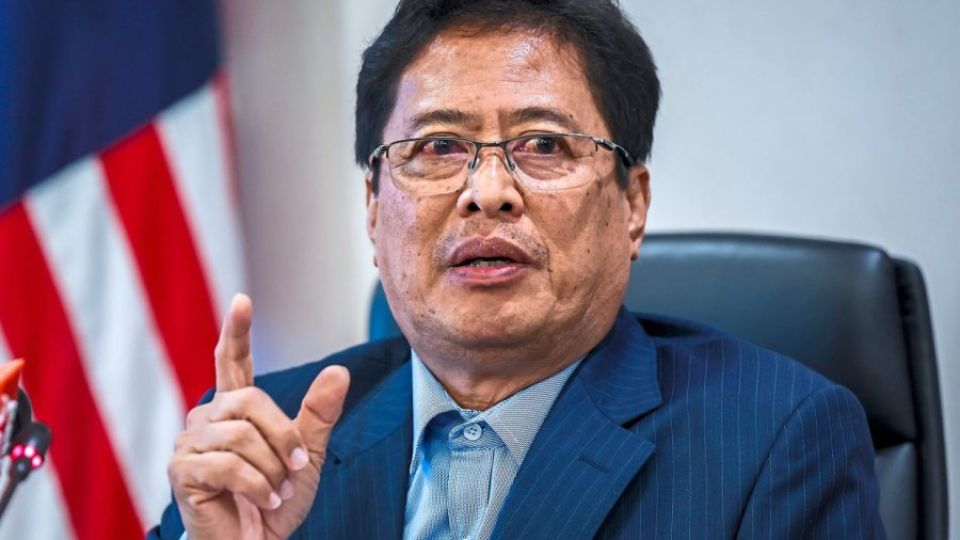September 19, 2023
KUALA LUMPUR – Between 2019 and last month, RM28.93bil in stolen money was returned to Malaysia.
If a deferred prosecution agreement (DPA) is put in place, we might be able to recover more stolen billions belonging to the rakyat at an even faster rate.
ALSO READ: DPA needs to be clear and transparent
Malaysian Anti-Corruption Commission (MACC) chief commissioner Tan Sri Azam Baki said having the mechanism in place would allow prosecutors to focus on getting outcomes without having to go through long, tedious – and expensive – trials.
“Having the DPA will be a game changer for the MACC. This is the way forward for us to fight economic and financial crimes.
“By having this mechanism in place, we can ensure faster recovery of assets and funds, and better compliance by the persons or entities (involved) to prevent future violations,” he said.
Azam said the aim is for the DPA to be embedded in the MACC Act next year.
ALSO READ: ‘A DPA can help minimise financial loss caused by a prosecution’
“This is one of my last few missions as the MACC chief,” he told The Star.
Azam, who was scheduled to retire in May, had his service extended for another year.
A DPA refers to a voluntary agreement reached between a prosecutor and an organisation facing financial crime charges to allow prosecution to be suspended or deferred, provided the organisation fulfills specified conditions.
Among conditions that can be stipulated under a DPA are payment of a monetary fine, disgorgement of monies associated with the offence, and monitoring by regulatory agencies.
Australia, Canada, France, Singapore, the United Kingdom and the United States are some of the countries that have the DPA mechanism.
Azam said the DPA could be used for fraud, bribery and other economic crimes, adding that this option is only for companies and not individuals.
“The agreement can be used to compel offenders to pay up. This is revenue to the government,” he said.
The chief commissioner cited the Airbus scandal as a notable case involving the DPA.
In 2020, Britain’s Serious Fraud Office entered into a DPA with global aerospace company Airbus SE. Under the terms of the agreement, the company agreed to pay a fine and costs amounting to €991mil (RM5bil) in the United Kingdom, and in total, €3.6bil (RM18bil) globally.
According to reports, the Serious Fraud Office investigated the company over allegations that it had used external consultants to bribe customers into buying its civilian and military aircraft.
In 2017, Singapore’s Keppel Corporation’s offshore and marine unit, under a US-brokered deal, agreed to pay US$422mil (RM1.9bil) in fines as part of a global resolution with authorities in Brazil, Singapore, and the United States.
According to the US Justice Department, the company had engaged in a scheme to pay US$55mil (RM258mil) in bribes to win contracts.
Azam pointed out that more countries are considering having the DPA mechanism.
“Given this trend, Malaysia should also consider having it in place,” he said.
Azam said the MACC had proposed for the mechanism to be introduced in 2019 and the then government had asked for a study to be carried out.
“We are in the midst of benchmarking with other countries. A team will be heading to the United Kingdom and they will come back with a proposal.
“Once we have fine-tuned it, the proposal will be presented to the Cabinet for approval,” he said.
On another matter, Azam said that the MACC achieved an “exceptional” record in forfeiture and asset recovery for 2022, totalling RM149,695,341 (about RM150mil).
On top of this, compounds issued under the Anti-Money Laundering, Anti-Terrorism Financing and Proceeds of Unlawful Activities Act worth RM44,454,800 were also collected.
Azam said the highest collection of RM64,386,825 came from special operations conducted to forfeit assets related to the 1Malaysia Development Bhd financial scandal which had been returned to the government.
“This is possible thanks to the strategic cooperation between the MACC and the US Department of Justice as well as the Federal Bureau of Investigation.
“We will continue to work on returning 1MDB assets back to the country’s coffers,” he added.

